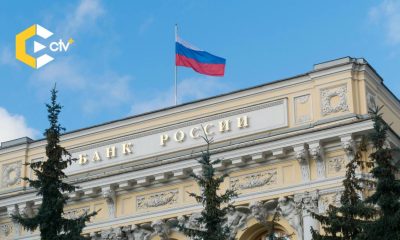News
Global Securities Regulator Issues Policy offering advice for crypto regulation

The International Organization of Securities Commissions (IOSCO), a leading global standards setter for securities regulation, has released comprehensive policy recommendations for the oversight of crypto markets.
These recommendations, published after a consultation period initiated in May, address various aspects of crypto asset service providers (CASPs) to establish a coordinated global regulatory response.
The International Organization of Securities Commissions (IOSCO) is a global cooperative of securities regulatory agencies aiming to establish and maintain standards for efficient, orderly, and fair markets.
It was formed in 1983 through the transformation of its predecessor, the Inter-American Regional Association, into a truly global cooperative. IOSCO operates in more than 130 jurisdictions, covering more than 95% of the world’s markets.
The organization is made up of several committees that meet at conferences that take place around the world several times a year, and the administrative offices of the General Secretariat are based in Madrid. IOSCO has four regional committees and a technical committee, which handles much of the organization’s regulatory work.
Despite industry requests for a specialized regime for stablecoins, IOSCO has declined, emphasizing that stablecoins will be subject to existing rules. The recommendations for controlling the crypto industry focus on key areas, including conflicts of interest, market manipulation, custody, cross-border risks, operational and technological risks, and retail distribution.
IOSCO noted the need for enhanced accountability among financial influencers in the crypto space. It also proposed collaboration between regulators and relevant authorities to guarantee precise disclosure in crypto promotions.
This emphasizes the importance of transparency, ensuring that promotional materials accurately convey information about associated risks and the services offered.
The aim is to establish a framework that promotes responsible communication within the crypto industry, aligning with broader efforts to safeguard investors and maintain market integrity.
Additionally, the report points out that the risks associated with crypto asset service providers (CASPs) mirror those observed in traditional financial markets. This alignment of risks prompts the regulatory approach outlined in the report to be consistent with established principles and standards in securities market regulation.
In recognizing the similarities, the regulatory framework seeks to address challenges and issues in the crypto space in a manner that aligns with the principles and standards applied to traditional financial markets. This approach ensures a cohesive and comprehensive response to the evolving landscape of crypto asset services.
Tuang Lee Lim, as the Chair of IOSCO’s financial task force, affirms that the regulatory approach outlined in the report aligns with the principles and standards set by the International Organization of Securities Commissions (IOSCO) for securities market regulation.
The goal is to ensure that established standards and principles are upheld in addressing the various risks and challenges posed by crypto asset service providers.
Read also; UniSat Wallet unveils new service for developers
























